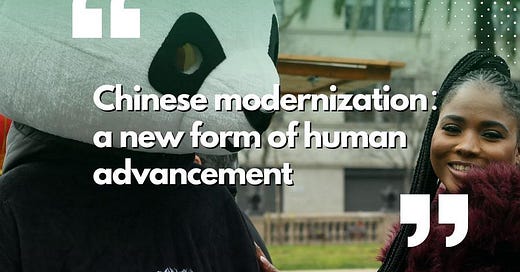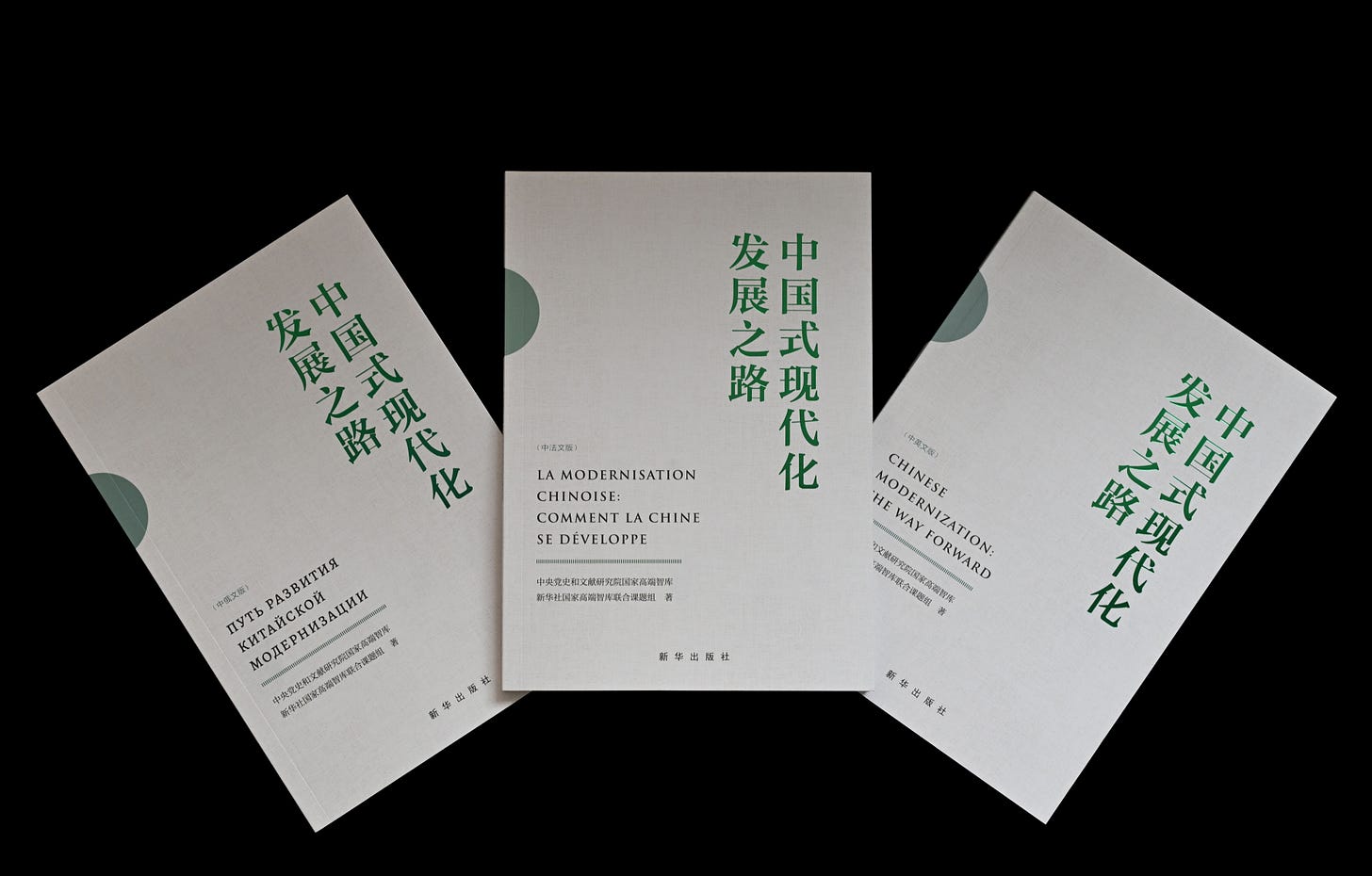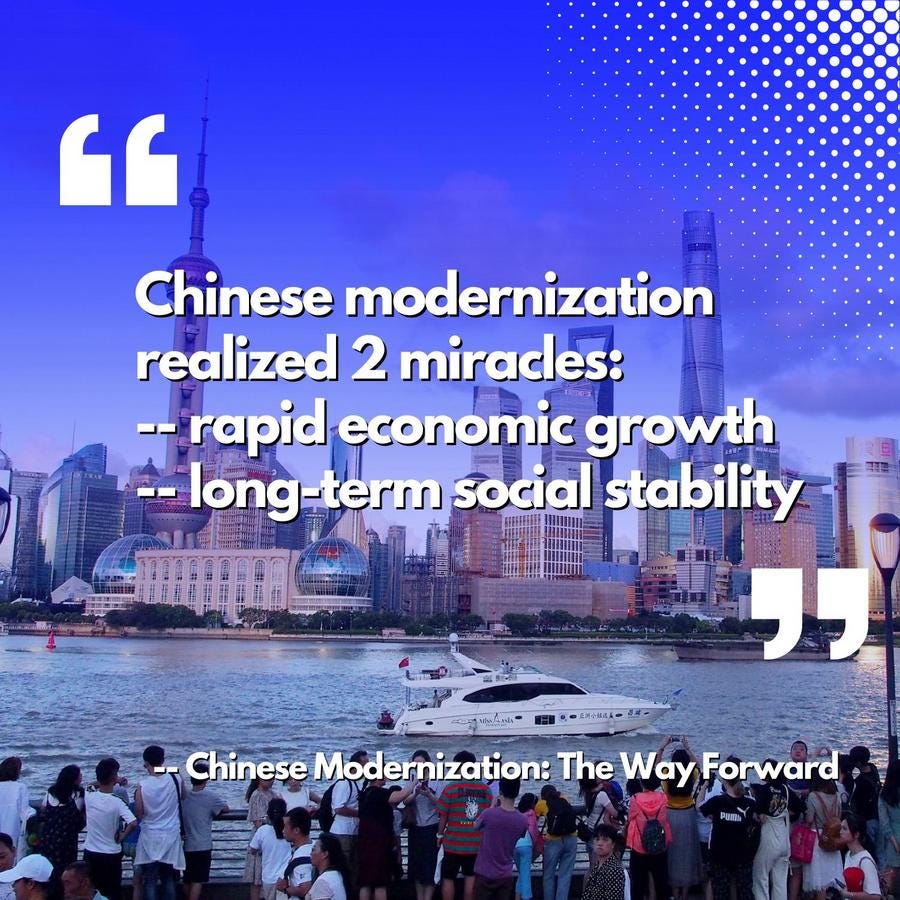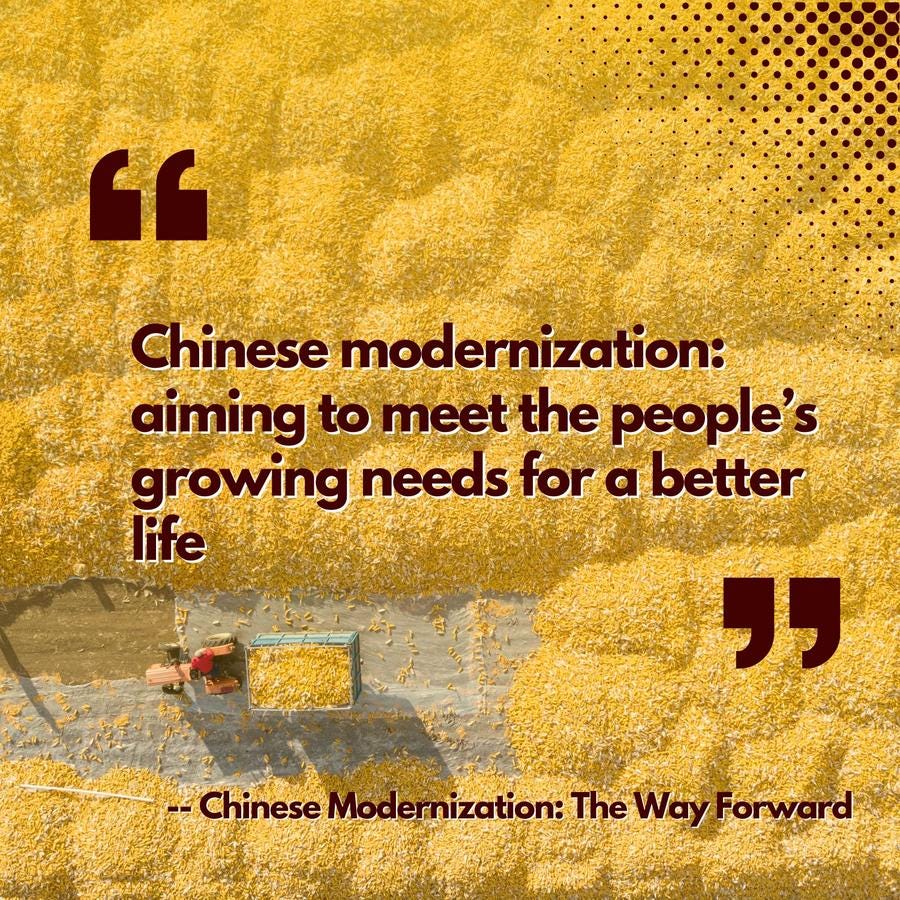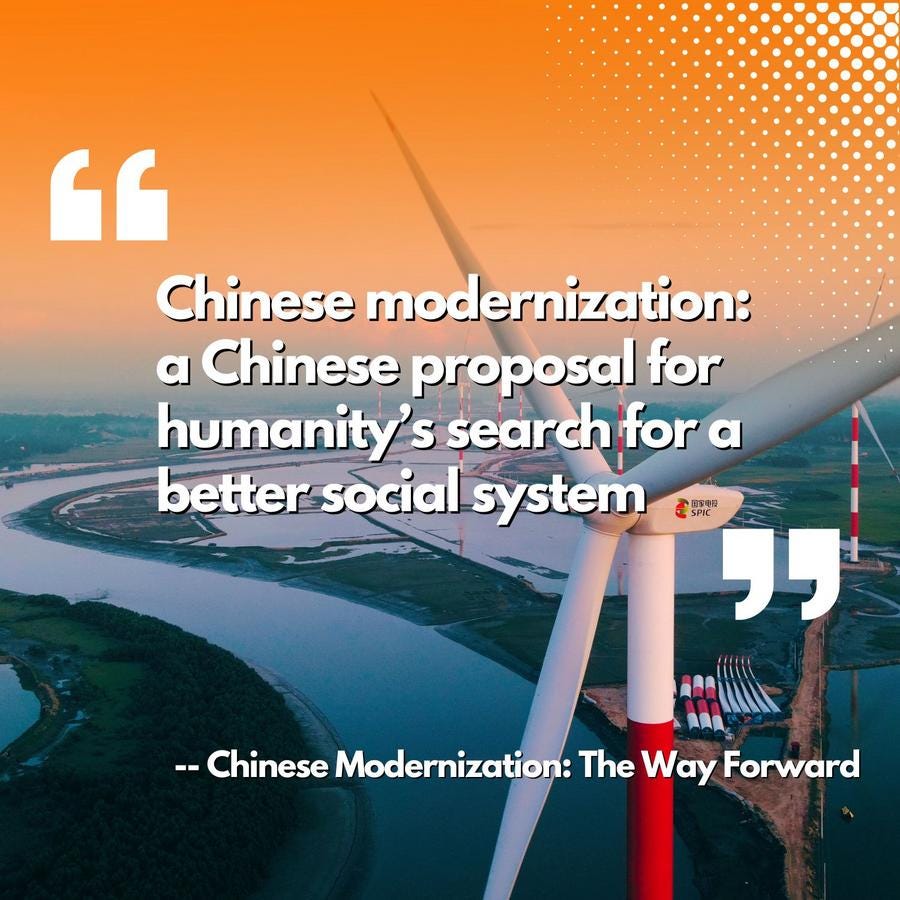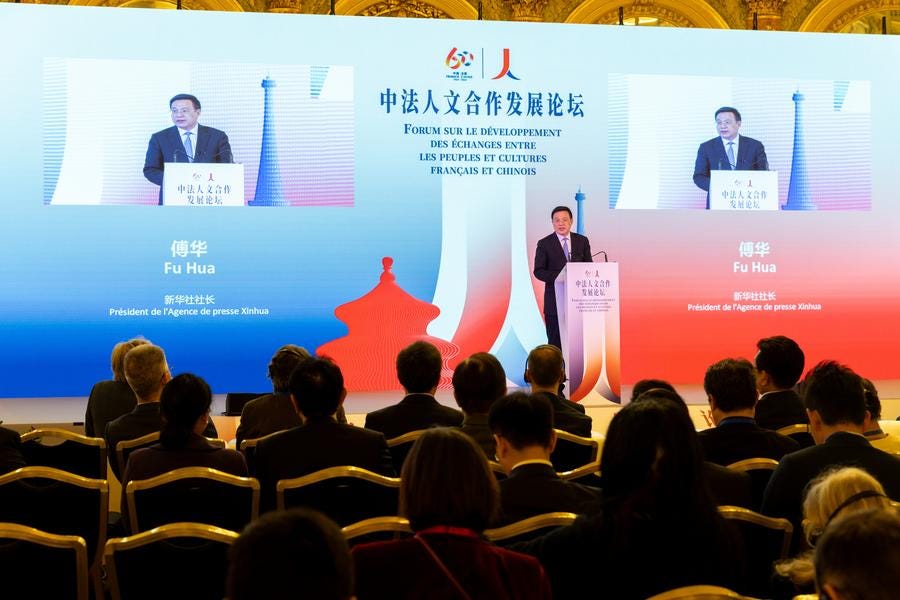Our report released in Paris on Saturday outlined China's approach to modernization and its significance to the entire world.
The report, entitled "Chinese Modernization: The Way Forward," was jointly issued by the Institute of Party History and Literature of the Central Committee of the Communist Party of China (CPC) and Xinhua Institute at the China-France forum on the development of people-to-people and cultural exchanges held in Paris.
It expounds on the development, practice and characteristics of Chinese modernization, and summarizes the value, institutional, developmental, democratic, and cultural forms of Chinese modernization, as well as its approach to global governance, from the perspective of civilization history.
The most notable takeaway from this report is that Chinese modernization challenges the notion that modernization equals Westernization, offering an alternative path for developing countries to achieve development and independence while prioritizing the well-being of their people. This approach emphasizes that modernization is not one-size-fits-all, but rather, a diverse and evolving process that should cater to the unique circumstances of each country.
The report offers an authoritative interpretation of Xi Jinping Thought on Socialism with Chinese Characteristics for a New Era, and serves as a key to understanding contemporary China's development experience.
How does Chinese modernization differ from Western modernization?
Western modernization theories have long been constructed based on Western experiences. The development of most developed Western countries has been a gradual process, progressing in the sequence of industrialization, urbanization, agricultural modernization, and informatization. They gradually built modern nations, economies, and societies with relatively ample time and more chances for trials and errors.
As the biggest developing country in the world, China has a vast territory, a large population and huge regional differences. To achieve modernization, such a gigantic country needs to solve numerous thorny problems that the West has never encountered.
China has pursued a path of coordinated development, rather than following the Western modernization process. In just a few decades, it has completed the industrialization process that took the Western developed countries several centuries, creating miracles of rapid economic development and long-term social stability.
The fruits of Chinese modernization have also benefited the rest of the world. It aims to address various thorny issues that have arisen in modernization history and to which Western countries have failed to find a solution.
Chinese modernization has broken the delusion that modernization equals Westernization, opened a new way for non-Western countries to independently explore modernization, and provided an alternative solution to countries and nations that seek to accelerate development and maintain self-reliance and independence at the same time. It is the Chinese approach to humanity's exploration of better social systems.
China's development experience demonstrates that there is neither a fixed model of modernization nor a universal standard of modernization in the world. The path to modernization is more than one.
For developing countries, achieving modernization is a must. China has created a new form of civilization through its modernization approach based on its domestic situation. Unlike Western modernization, the Chinese one puts people, not capital, first; it debunks the idea of "the end of history" and pursues the constant improvement and innovation of systems and institutions; it pursues a model of comprehensive and coordinated development, not one-dimensionality and alienation; it ensures that the people run their country and that democracy is not practiced for the few; it strives to both preserve cultural heritage and enrich it; and it rejects unilateralism in global governance and advances the building of a human community with a shared future.
What are the characteristics of Chinese modernization?
Modernization is not only about the economy, it is also about the well-rounded development of the people. Chinese modernization takes the realization of people's aspiration for a better life as the starting point and foothold of all endeavors, and its ultimate goal is to achieve the full and free development of every individual.
In promoting modernization, China has won the battle against poverty. This lifted the Chinese people -- one-fifth of the world's population -- out of absolute poverty, an unprecedented achievement in the history of social development.
China has become the world's second-largest economy with its gross domestic product (GDP) exceeding 100 trillion yuan (around 14 trillion U.S. dollars), and its per capita GDP surpassing 10,000 U.S. dollars. This has changed the nation's marginal and backward position in the global economic system after the advent of modern times and has contributed greatly to the world economy.
A world of peaceful development should carry various forms of civilization and must accommodate diverse paths to modernization. As the world is facing various changes, China has been vigorously promoting the common values of peace, development, impartiality, justice, democracy and freedom for all mankind, rejecting small circles and zero-sum games, and calling for joint efforts in building a new type of international relations based on mutual respect, fairness, justice and win-win cooperation, seeking to expand the convergence of interests.
Chinese modernization is advancing and will undoubtedly spark further development and bring more benefits to the world, contributing wisdom and strength to a better future for mankind.
Here are some highlights from the forum:
Upholding the spirit of "establishing oneself and helping others to establish" and the idea that "the world is one family," China has been sharing development opportunities and building a better future with other countries, a move that benefits the Chinese people and promotes global development as well, which will have a positive and far-reaching impact on the world.
—Fu Hua, president of Xinhua News Agency and also chairman of the academic committee of Xinhua Institute
Noting that global development is facing new challenges, Marc Uzan, founder and executive director of the Reinventing Bretton Woods Committee, called for closer cooperation between France and China to make the international financial system more resilient, equitable and inclusive.
"By aligning efforts with China and with other international partners, we will be able to contribute to shaping a more stable global governance," Uzan concluded.
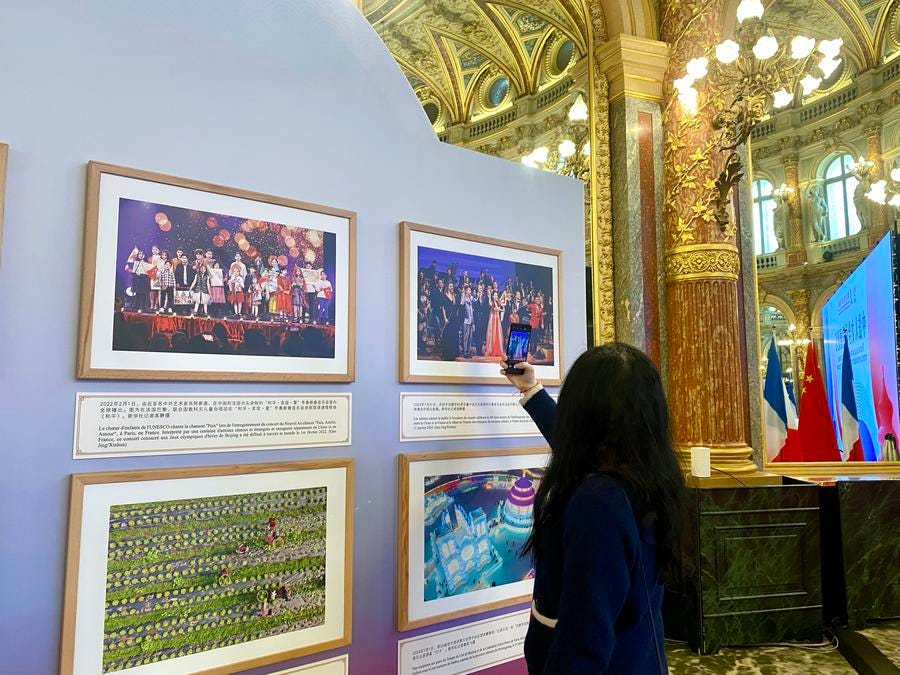
The Chinese practice can help the French take a step back from their customary ways of thinking.
-Remi Mathieu, French sinologist and research director emeritus of the French National Center for Scientific Research (CNRS)

